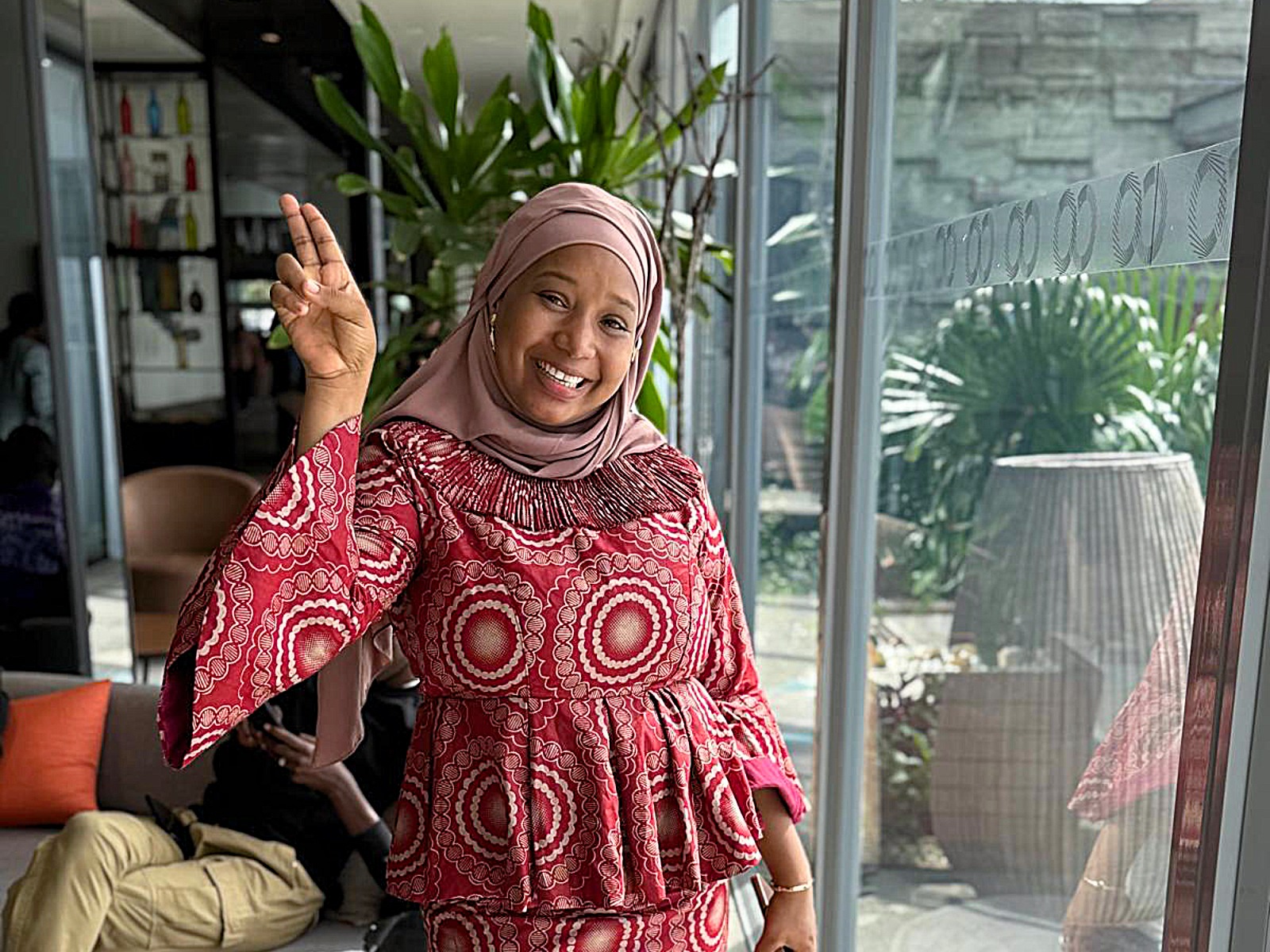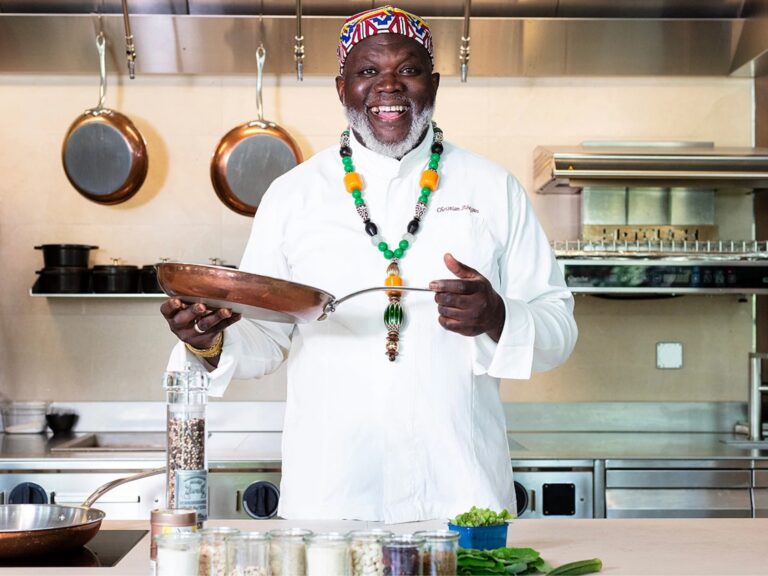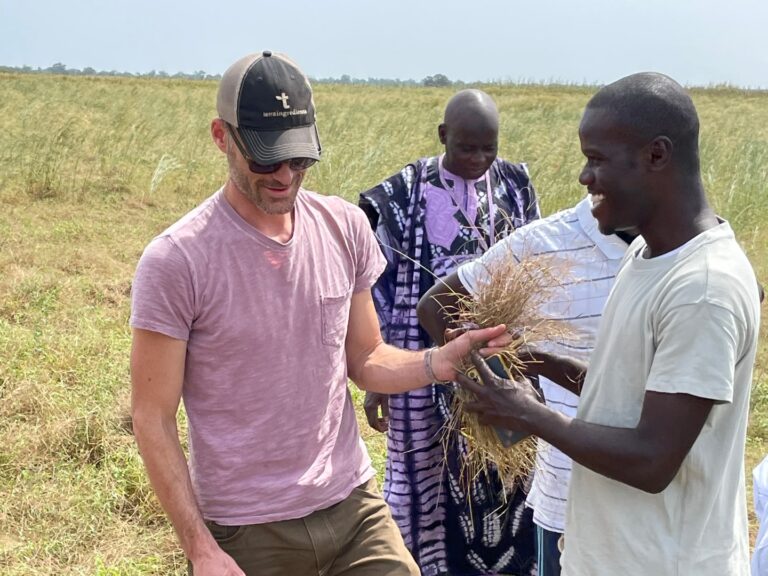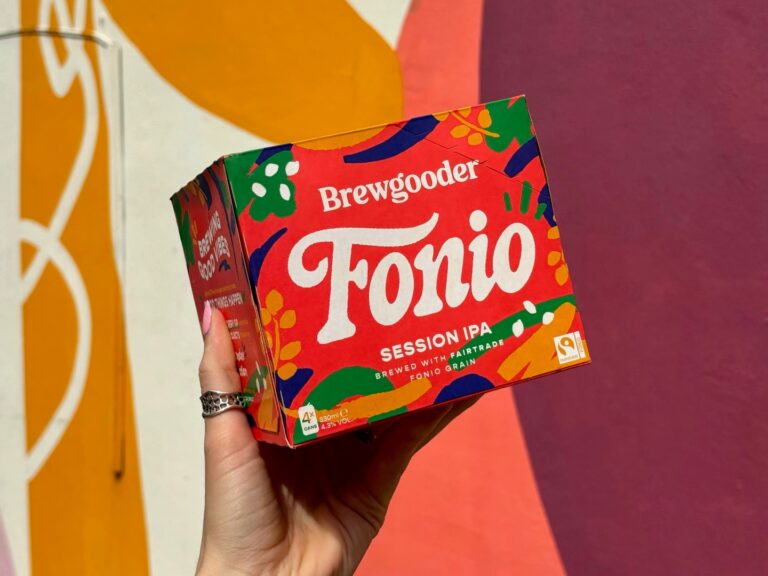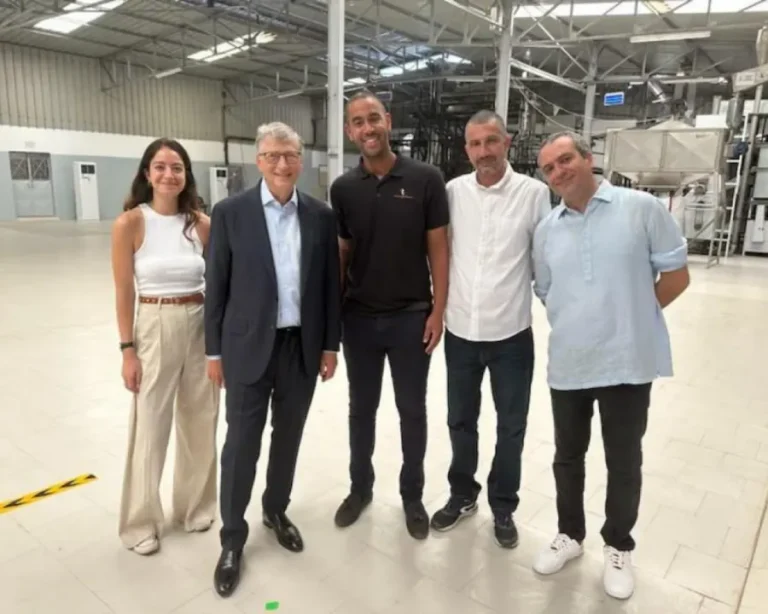How Maimouna & Terra Ingredients are reviving fonio farming and empowering women in Guinea
Nestled in the mountainous landscapes of the Fouta Djallon region of Guinea, the seeds of transformation are being sewn for a forgotten grain and the value of women in Guinean society. In collaboration with Terra Ingredients, a relentless entrepreneur named Maimouna Diallo is spearheading the revival of fonio production while inspiring other Guinean women to pursue their dreams in a traditionally patriarchal society. Beyond managing her small business and mentoring women in fonio production and entrepreneurship, Maimouna leads a Fairtrade Certified cooperative of fonio farmers in Koubia sponsored by Terra Ingredients. Recently, she has also officially joined our team as our Small Farm Manager in Guinea, bridging the gap between local fonio farmers and our global supply chain.
As we expand our fonio initiative in West Africa, collaborating with dedicated individuals committed to sustainable agriculture and positive impact is part of our core mission, and Maimouna is one such individual. As a small business owner, the president of a farmers’ cooperative, a wife, a mother, and now part of the Terra Ingredients team, Maimouna exemplifies what the future can hold for Guinea. She has also played a crucial role in Terra’s success in establishing Fairtrade certification and expanding our work with small-scale farmers in the region.
Through her relentless efforts and uncompromising spirit, Maimouna is not only helping us expand the production of fonio in neglected areas but also helping reshape local attitudes toward women in agriculture, business, and leadership positions. Her journey is a testament to empowerment, resilience, and the belief that anything is possible with steadfast determination and the right partnerships. We are excited to be able to share her inspiring story with you now.
From Humble Beginnings to Entrepreneurial Success
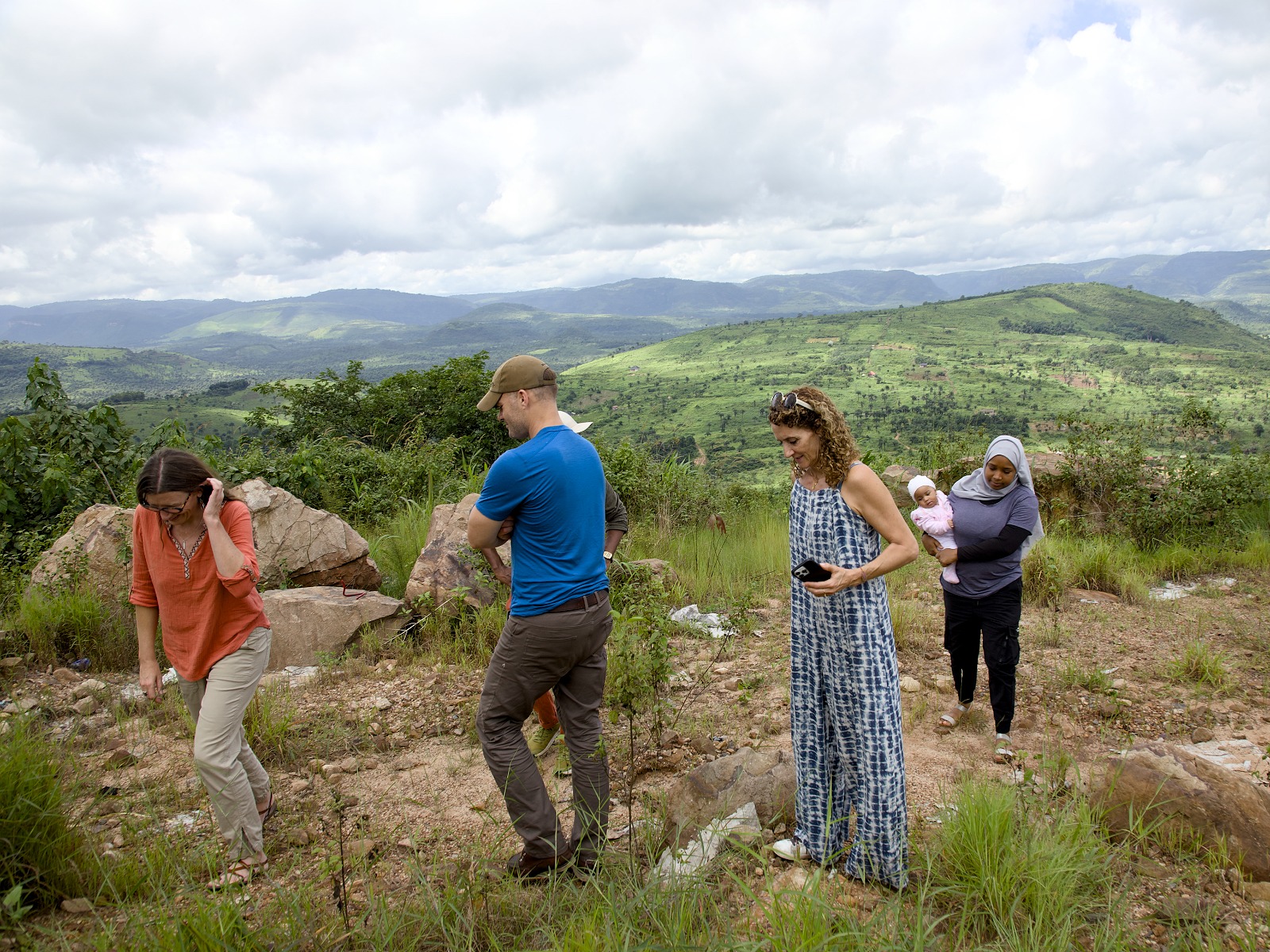
Maimouna’s journey began in the serene town of Labé in the picturesque Fouta Djallon region. Growing up in a family with deep agricultural roots, she spent her childhood captivated by her grandparents’ hands-on work cultivating local crops. Among these was fonio, a nutritious and climate-resilient grain that sparked her imagination early on. “I come from a family involved in agriculture,” she remembers, “and I often thought, ‘I want to do more with this,’ but I wasn’t quite sure how.” Although she didn’t have the answers then, the inspiration from these trips never left her throughout her childhood.
It wasn’t until her time at university that Maimouna discovered the opportunity to utilize fonio and other locally grown crops in new ways during an entrepreneurship training program in Dakar, Senegal, in 2018. This experience ignited her ambitions and gave her the tools to transform her business aspirations into reality. Energized and armed with new insights, Maimouna returned to Conakry, Guinea, ready to launch her new venture. Drawing on her family’s agricultural legacy, she founded Bioray, a small business focused on processing and selling fonio and other local foods like cassava and sumbala.
Since its launch, Bioray has steadily grown its customer base despite pushback and cultural hurdles. “Sometimes I visit small shops or station stores multiple times, sometimes up to three or five times, just to convince them to take a few products and agree to place them on their shelves,” explains Maimouna. “Once they do, they’ll often say, ‘Okay, once these products are sold, we’ll give you your payment, and you can come back to collect it.” This is an arrangement that Maimouna says her male counterparts do not face, and every new store requires similar effort and arrangements regardless of her previous success. Unfortunately, this means Bioray’s growth happens at a much slower pace.
However, through determination and hard work, Maimouna transformed Bioray from a small operation that sold products to her university classmates into a food brand that now partners with roughly 30 stores in the capital of Conakry. In addition to her in-store products, Bioray also offers convenient meal prep delivery services to office workers across the city. “We create kits with several products in one bag, which helps simplify cooking for office workers who may not have much time,” she explains. “Many women working in offices appreciate this since it allows them to prepare meals quickly after work—like having meals ready in 15 minutes.” Despite the uphill climb for Maimouna and her entrepreneurial ambitions, her persistence has led to a sustainable business, something that is highly uncommon for women in Guinea.
Introduction to Terra Ingredients
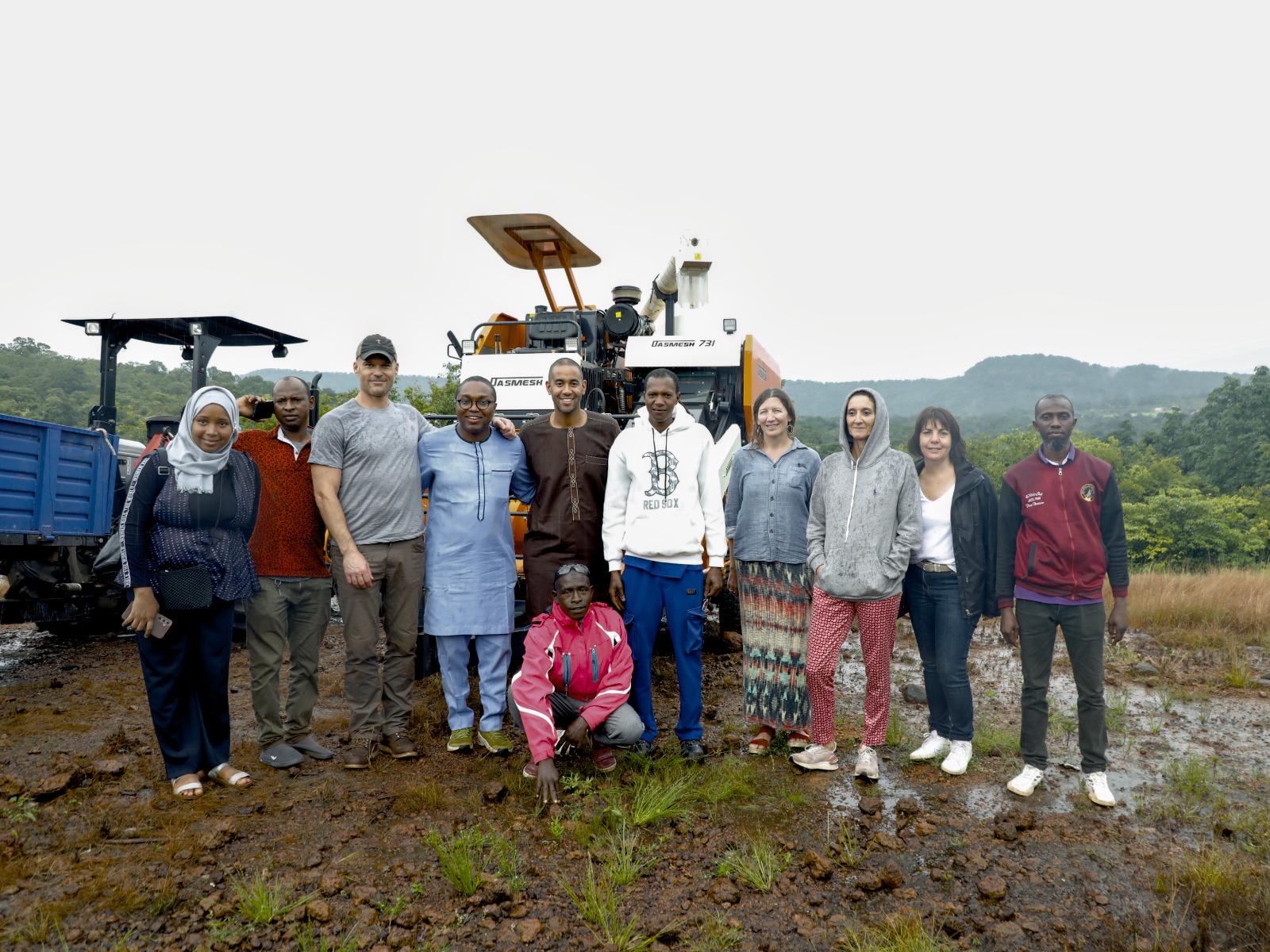
While Maimouna was growing Bioray in Guinea, Terra Ingredients began its own fonio journey in West Africa. We started working with local fonio farmers in Senegal and Mali to generate a consistent supply of fonio and helped create the first-of-its-kind fonio processing plant with our partners at CAA in Dakar. Upon the processing plant’s inauguration in 2021, Terra Ingredients became the world’s leading fonio supplier with the capacity and quality control systems to serve food manufacturers and brands worldwide. However, increased growth led to increased challenges.
One of our biggest challenges was organizing groups of farmers, providing them with the necessary technology, and educating them on farming techniques to maximize the potential of their land. This task was particularly difficult without a full-time member from Terra on the ground to oversee the operation and act as a bridge between the local farmers and our global supply network. As we continued our search to expand the fonio supply chain in West Africa, we shifted our focus towards finding the right people to help us achieve our goals. This search eventually led us to Maimouna.
Malick Diedhiou, who had been exploring the possibility of Fairtrade certification for Terra’s fonio, initiated and eventually led our certification efforts from the Netherlands, working directly with the German-based certification team at FLOCERT GmbH. With demand for Fairtrade fonio increasing and the support of a key partner in Norway, Osman Diallo, the only missing piece was either to organize a network of fonio farmers in West Africa or find one that already existed that could become Fairtrade Certified alongside Terra Ingredients. Fortunately, Osman had direct connections to the region and introduced us to Maimouna, who was already laying the groundwork for a potential farmer cooperative through her work with fonio––whether she knew it or not. After our initial meetings with Maimouna, we were captivated by her story and her successes in reviving interest in fonio in Guinea, so we got to work on the logistics.
Launch of a Cooperative
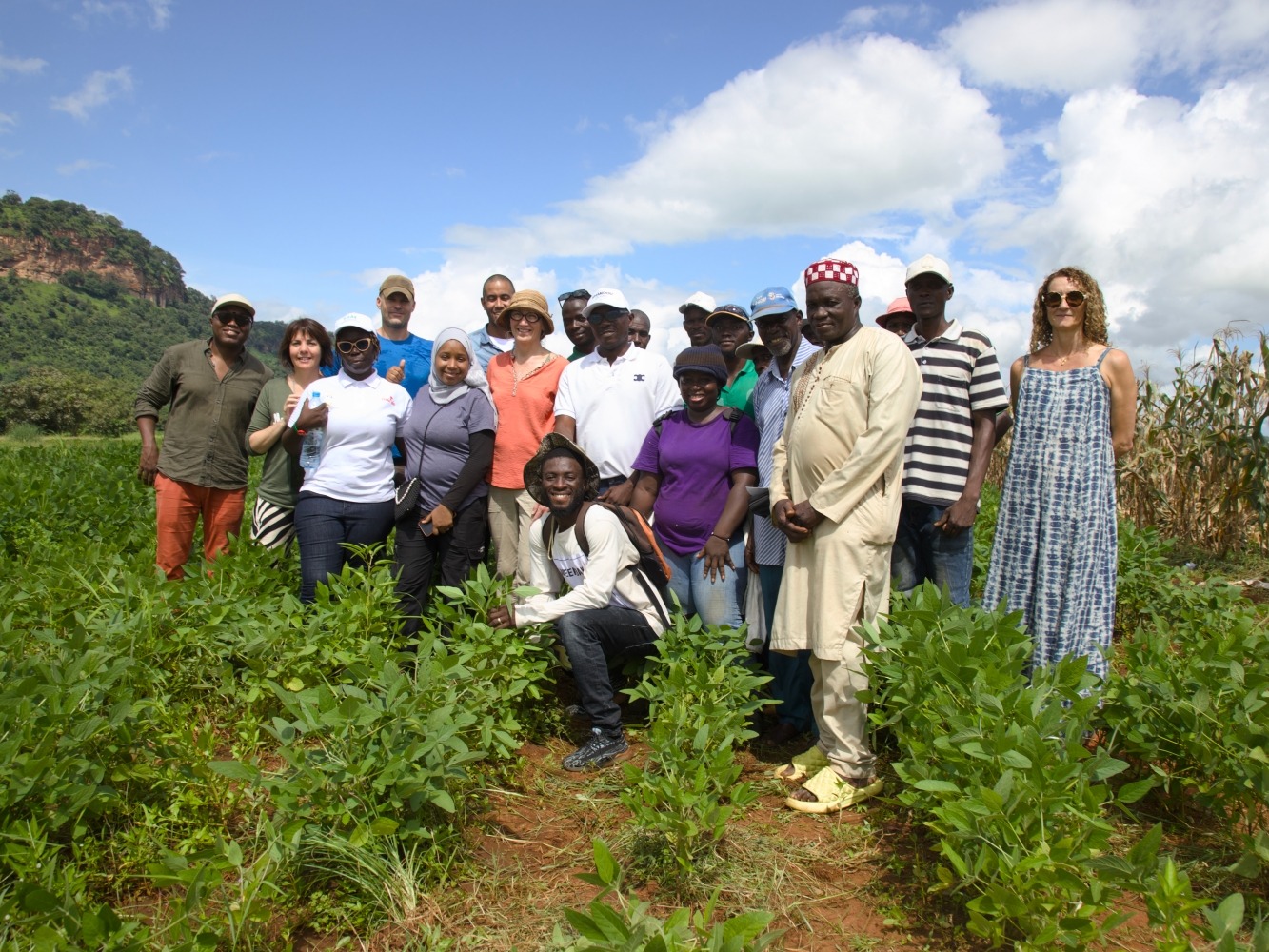
By October 2023, Maimouna co-founded the Groupement des Producteurs de Fonio (GPFF) in Koubia near her family farms, with Terra Ingredients sponsoring the initiative. While Maimouna began to organize the farmer co-op in Guinea, Terra provided funding, demand, and an international supply chain for fonio that would be critical to driving engagement from the community. As the co-op and supply chain logistics were solidifying, GPFF and Terra Ingredients were awarded Fairtrade Certification in less than six months of launch, an achievement that even the team at FLOCERT GmbH didn’t think was possible in such a short timeframe. It was truly a shared vision and effort that neither Maimouna nor Terra Ingredients could have accomplished separately, displaying the power of working with the right people on a shared mission.
Most rewarding was the interest and response of the GPFF members themselves. The local community’s trust in Maimouna and her attestations about Terra’s long-term commitment to the project overcame their skepticism. More farmers applied to be a part of the co-op than could initially be included, so Maimouna and the first group of members screened applicants for those most dedicated to the community project. Unlike previously, co-op members now had a ready market for their production at a fair, incentivizing price. Instead of uncertainty on when the farmers could sell their fonio, which usually came in small portions at a time, the guaranteed income at harvest meant that households could pay for childrens’ schooling, plan for household expenses, and lay aside funds for future needs.
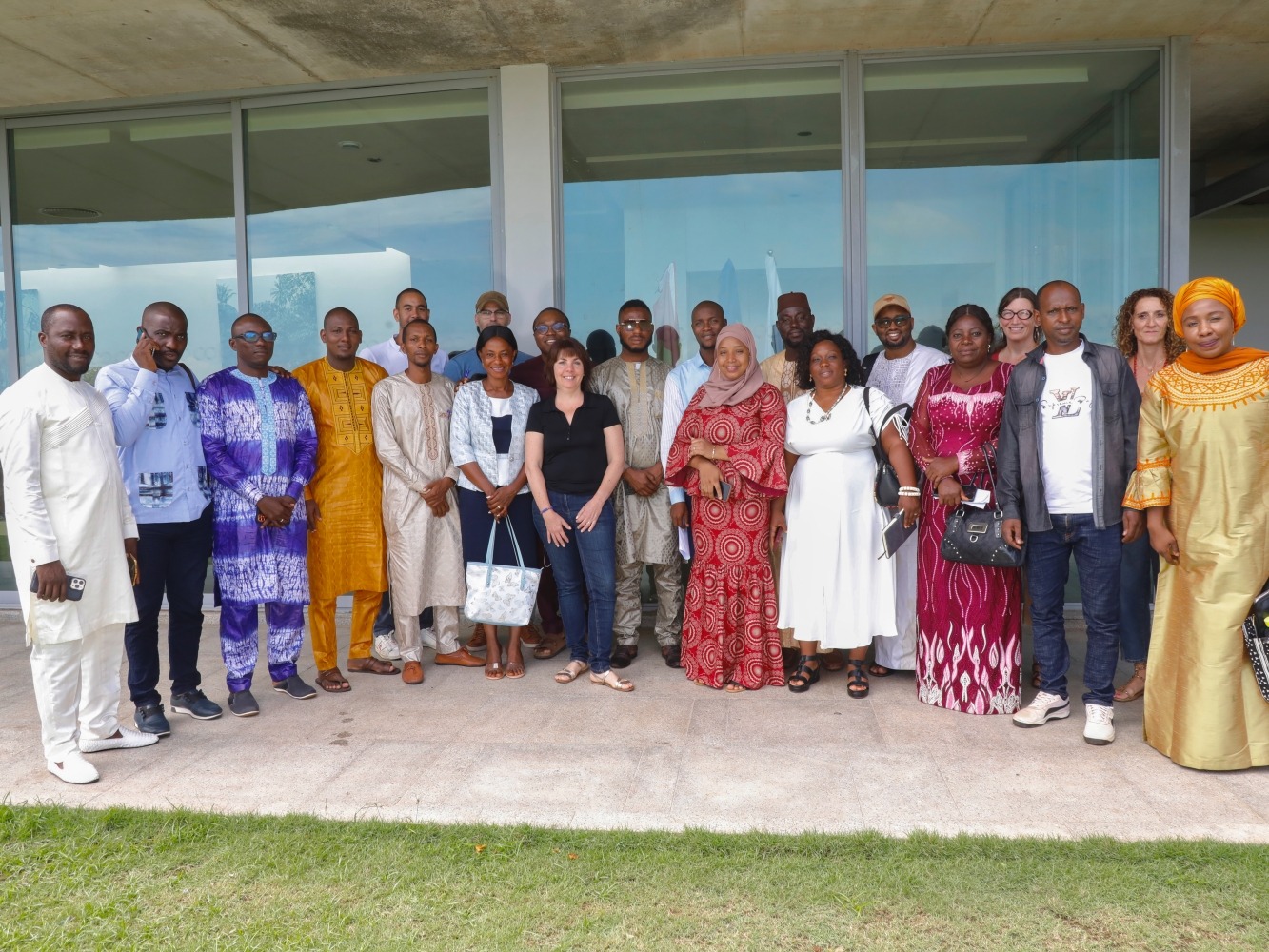
With an official Fairtrade certification, global demand, and supply chain for fonio produced in Koubia, Maimouna saw renewed hope among her community there. Reflecting on the cooperative’s impact, Maimouna explains, “When the association was created, I saw a wave of motivation sweep through our community. It’s like a lifeline—farmers are not only staying but are also expanding their fields, confident that the cooperative will attract buyers and elevate their market presence.” One of the biggest challenges for fonio farmers in regions like Koubia has been limited market access, and the Terra/GPFF partnership provides that access, encouraging them to invest in their lands rather than seeking opportunities elsewhere.
Maimouna’s work and the existence of a female-led cooperative have also inspired women in Koubia to join and become significant stakeholders in the project, with 50% of the members comprising of women––a highly unusual statistic in Guinea. “I believe we are the only cooperative with an equal split of men and women in the area,” she exclaims. “Otherwise, women are generally not involved in these types of cooperatives, especially not in this type of organization.” By working with Maimouna and the GPFF cooperative, we are also cultivating a fonio supply chain that prioritizes fair wages, eco-friendly practices, and meaningful social impacts for producers. “Witnessing families who once toiled on just two or three hectares now selling their entire produce and earning enough to support their loved ones is incredibly rewarding. It’s a testament to the positive change we can achieve together,” she exclaims.
Breaking Barriers and Empowering Women

In a society that often dictates a woman’s role as confined to the home, Maimouna defies those norms, navigating her path amid significant challenges. “In our culture, it’s believed that a woman’s place is at home,” Maimouna reflects. “If I attend a forum dominated by men and I want to speak up on behalf of women, the moment I begin, I see men lose interest. It’s as if they’re thinking, ‘She has nothing of value to say.’” Maimouna experienced firsthand how women’s ambitions are halted early in their adult lives, beginning when her original partner in Bioray had to step away once she married. “We created a business together when we were single and childless, but once she got married, she was no longer active,” she says. “Unlike me, she did not have the support of her husband, who told her that her place was at home with the children.”
One advantage that Maimouna has compared to many other women in Guinea is the steadfast support of her family, particularly from her father and husband. While most Guinean women face isolation in their individual pursuits, the two men closest to Maimouna have been her biggest supporters. Her father has been a close advisor and financial ally since the beginning of her journey, and her husband actively participates in parenting, sharing the responsibilities at home so Maimouna can operate her business. “I’ve been fortunate,” she remarks. “My father has been my biggest supporter since day one, and my husband truly understands my ambitions, even lending a hand in managing my commitments.”
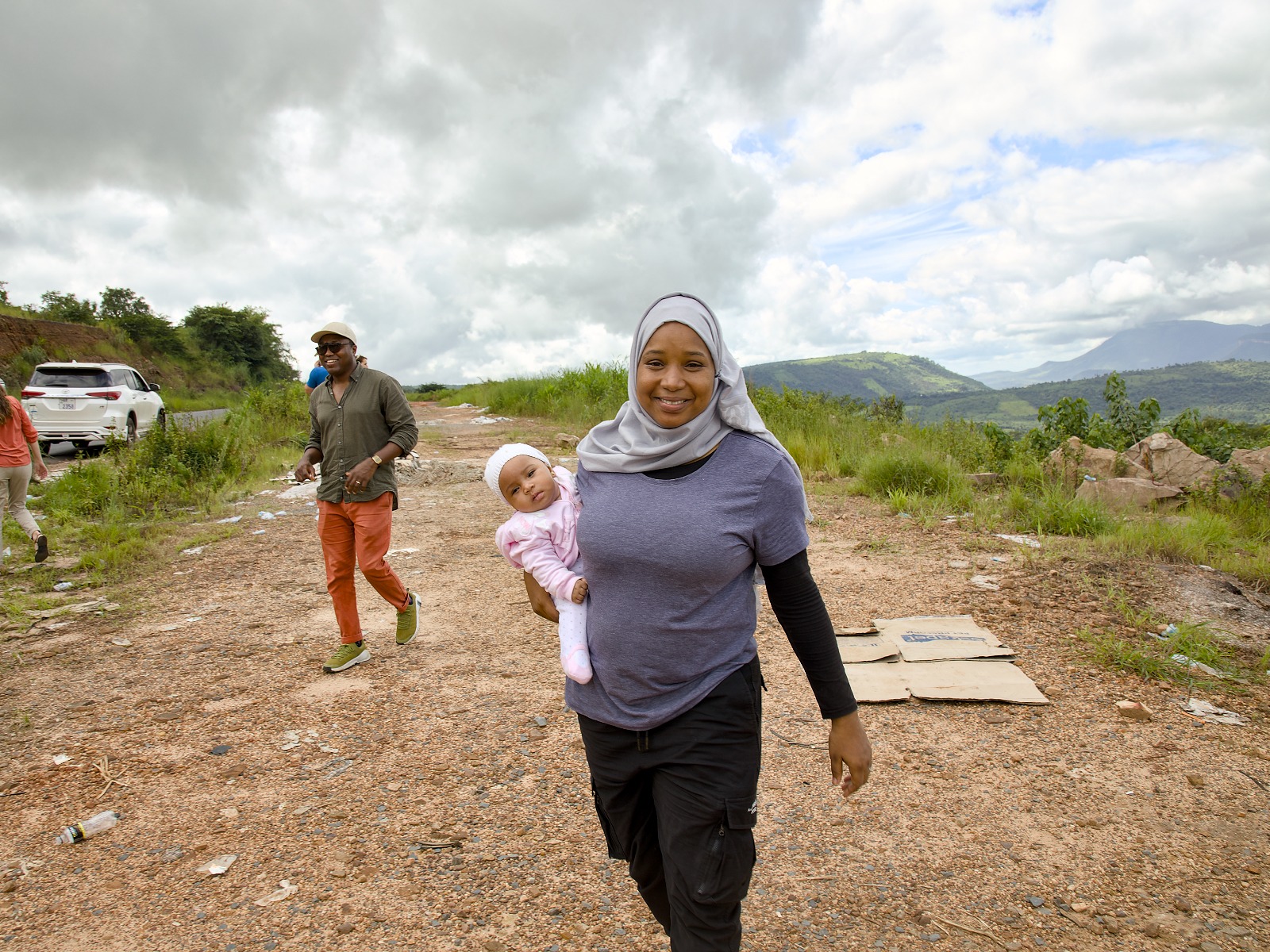
Launching Bioray also opened other doors for Maimouna that would lead to a greater impact beyond her personal successes. From being invited to participate in trade exhibitions to organizing empowering training sessions for aspiring female entrepreneurs, Maimouna is making waves in the region. “Thanks to the business I created, I could engage women with similar aspirations to mine,” she explains. “We even formed a small group focused on fonio processing, and everything we do is manual—we pound, wash, and process fonio entirely by hand.” This specific group includes roughly a dozen women who come to work daily, encouraging them toward independence. A few women from Maimouna’s trainings have even started their own businesses in the city of Mamou, who are conducting their own fonio processing.
Driven by her success, Maimouna is committed to creating opportunities for other women to do the same. She is a passionate advocate for female empowerment, continuing to organize training sessions and job creation initiatives to spark positive change in her community and elsewhere in Guinea. Through GPFF and her fonio processing group, she has cultivated a vibrant platform where women can gain financial independence and challenge the traditional gender roles that have long held them back. Maimouna’s journey is not just about her triumph; it’s about igniting a movement, inspiring countless women to embrace their potential and carve out their futures.
The Fight for Local Flavor: Elevating Guinea’s Own
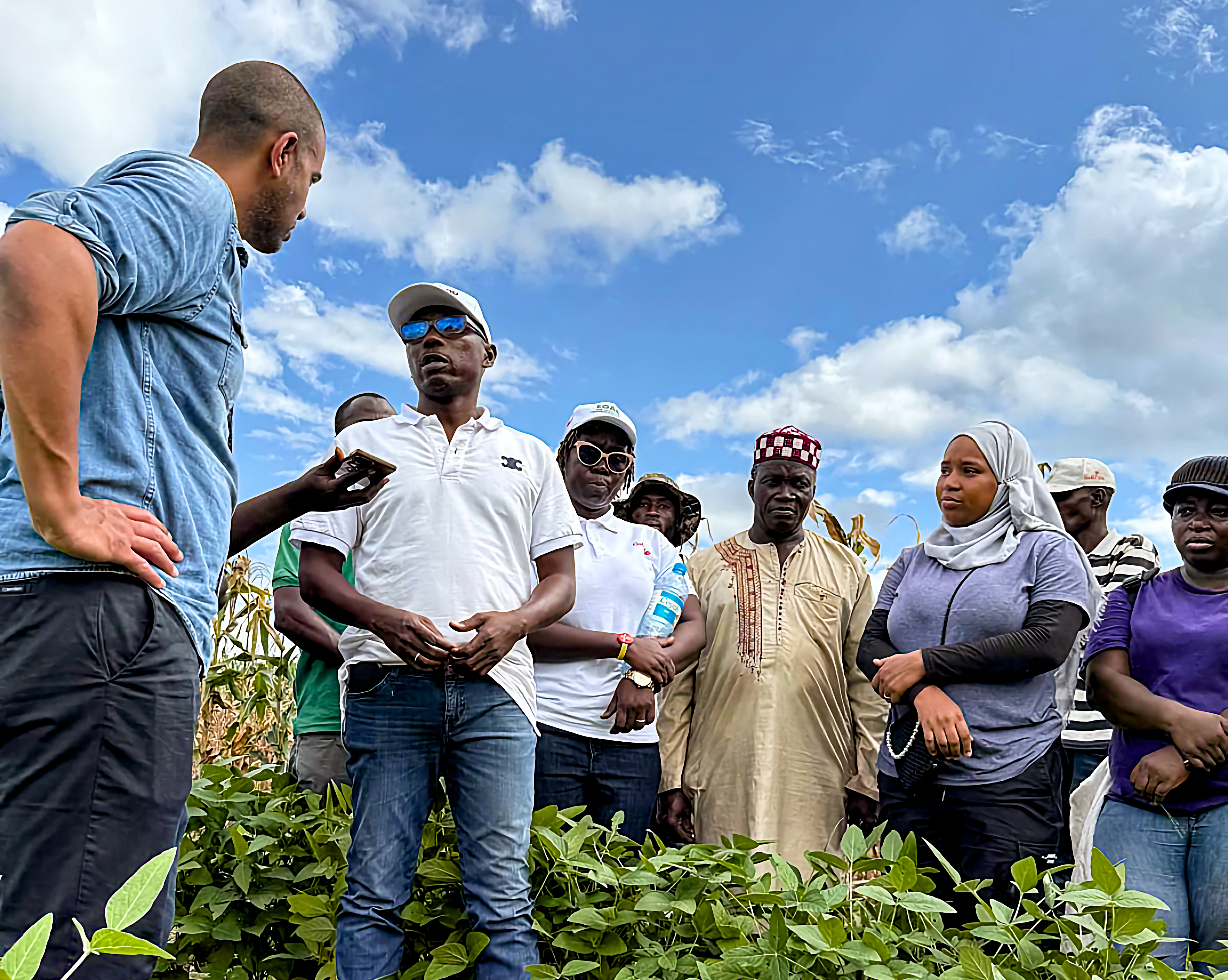
On the local level in Guinea, another curious battle is unfolding in the marketplace—a struggle between the allure of imported goods and the rich flavors of local produce. At the forefront is Maimouna, and she is determined to change how people think about homegrown products. “Fonio is often dismissed as ‘food for the poor,'” she explains, highlighting the stigma that clings to this nutritious grain. Despite its myriad health benefits and role in sustainable agriculture, fonio faces an uphill battle against the familiarity of imported staples like rice.
With the successes of Bioray and the GPFF, Maimouna is on a mission to rewrite this narrative. She’s not just promoting fonio; she’s showcasing its quality and versatility in creative ways. Her innovative pre-packaged fonio kits have become a hit among busy professionals, particularly women navigating the demands of office life. Customers rave about the convenience and health benefits these kits offer, proving that local products can compete with imported favorites.
Yet, Maimouna knows the journey is far from complete. Changing deep-seated preferences and educating the community about the nutritional advantages of local foods is an ongoing challenge. However, with each step, she continues to inspire a shift toward embracing the value of Guinea’s culinary treasures.
The Future of Fonio in Guinea
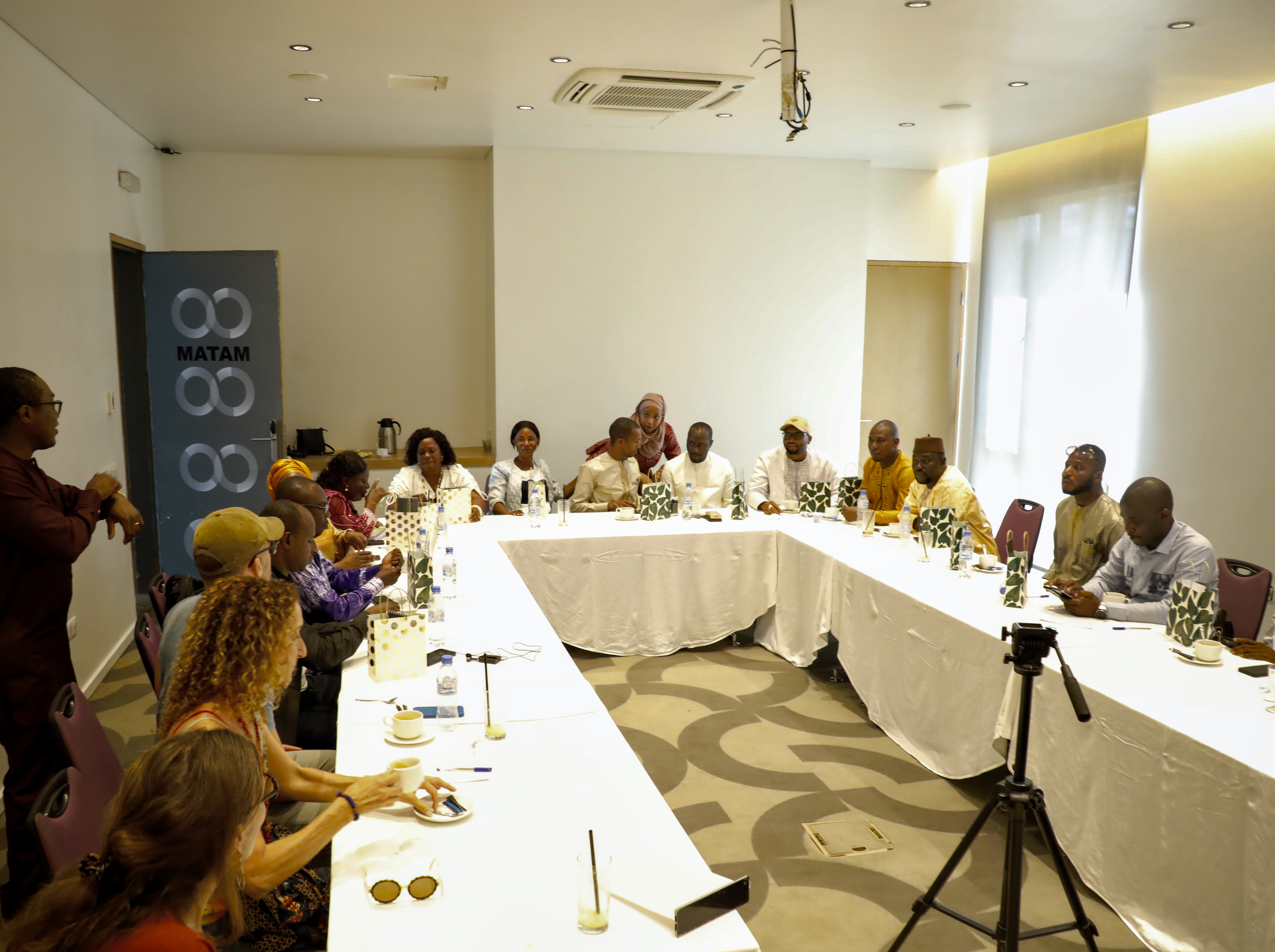
Maimouna’s vision for the future is both ambitious and inspiring. For the GPFF cooperative, she envisions even more growth, with expanded fonio fields that enable members to pursue personal aspirations, such as building homes, educating their children, and making the pilgrimage to Mecca. “Given what we achieved last year and this year, I believe we can reach even greater heights, where our producers are empowered and able to support their families and fulfill their personal dreams,” she proclaims. Individually, she hopes to turn Bioray into a widely recognized brand and establish a local processing facility in Guinea to increase her reach.
Maimouna’s goals reveal her aspiration for personal success and a future in which women in Guinea are actively involved in entrepreneurship. She envisions a world where women are empowered to make their own decisions and recognized as valuable contributors to society. “I see a future where women are fully engaged in entrepreneurship, know how to assert their place, and play a significant role in society,” she says optimistically.
As we work toward a future rooted in strong partnerships and shared values, Terra Ingredients is dedicated to supporting Maimouna and other women who are transforming their communities through sustainable agriculture and leadership. Together, we believe we can build a sustainable, inclusive, and prosperous future for West Africa and beyond.
